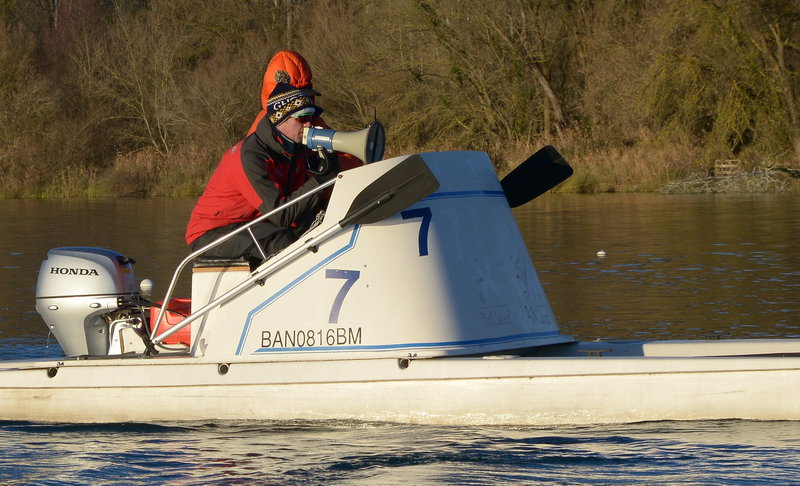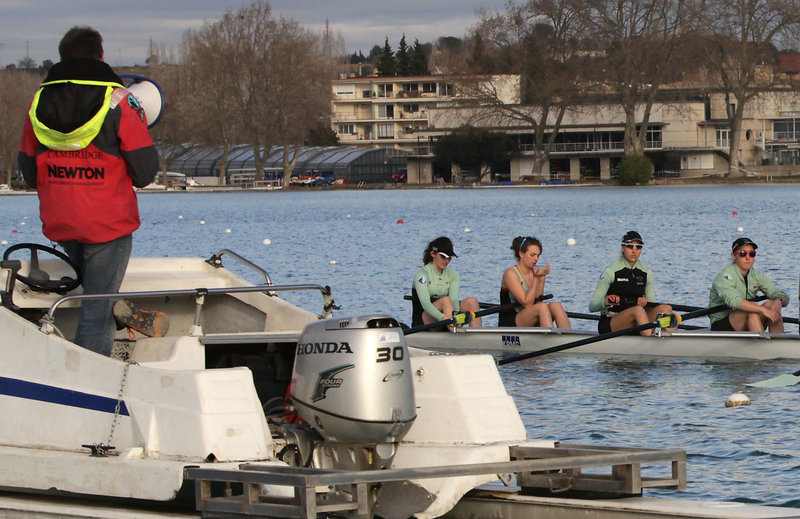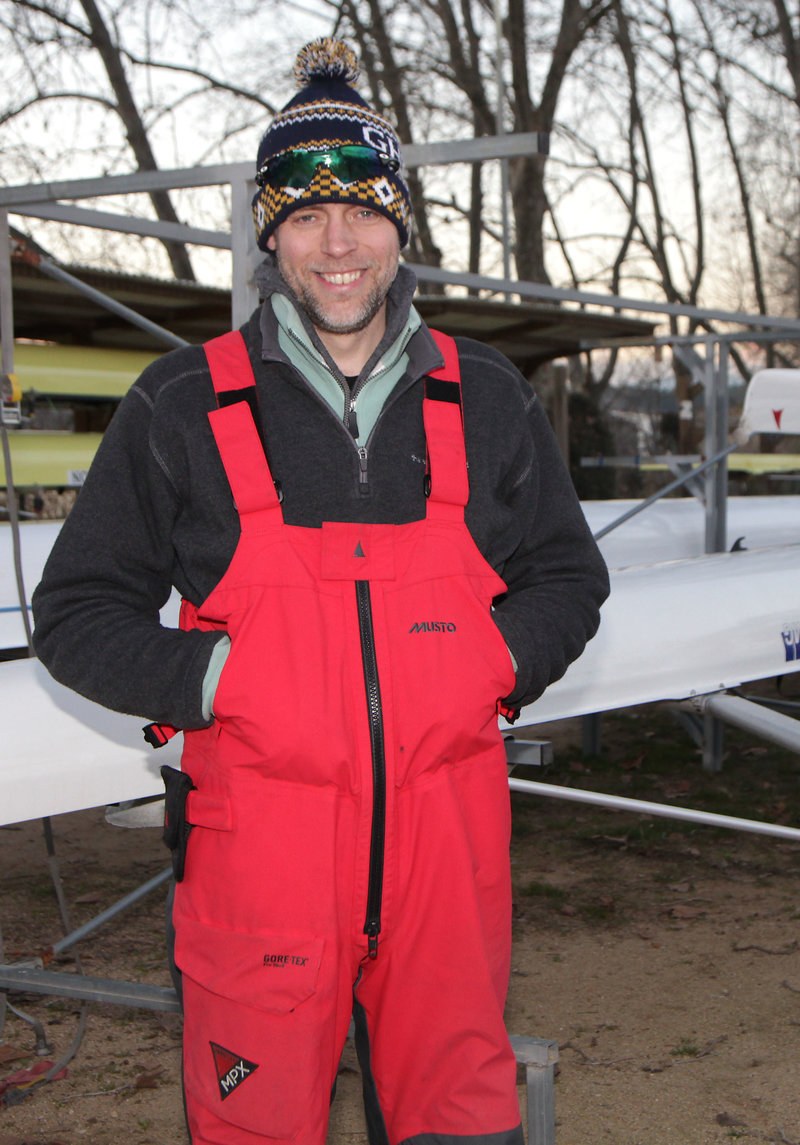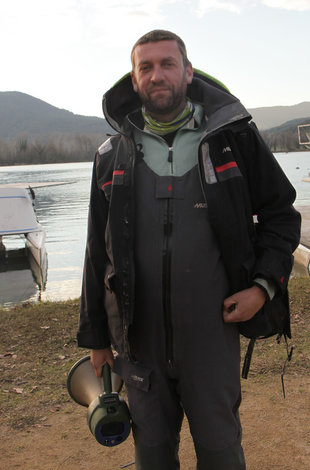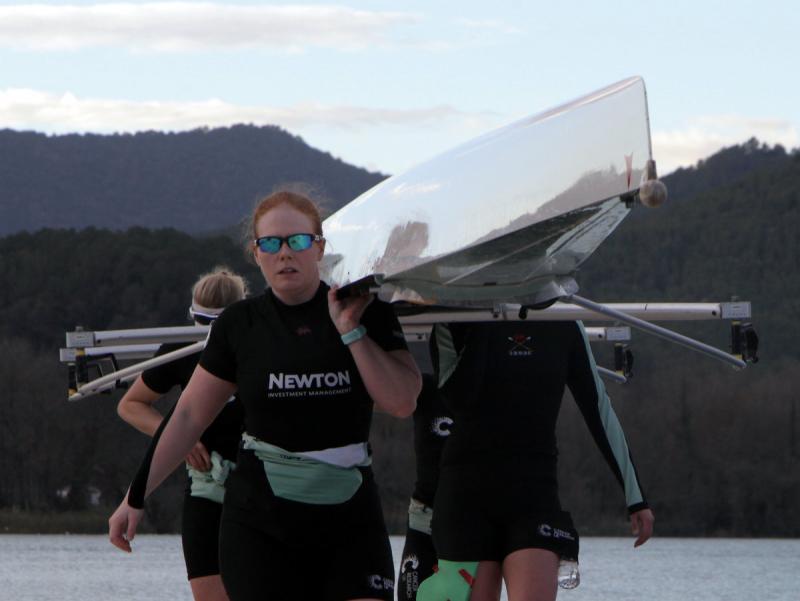Features
Steve Trapmore & Rob Becker
Getting ready for the big Boat Race
Steve and Rob are the respective coaches of the mens 'and womens' Cambridge University rowing teams
What has been your experience training in Banyoles?
S.T.: With Cambridge University this is my seventh year as a coach, and I've followed the tradition of Cambridge in coming to Banyoles this time of year; we've been coming here since the early 1990s. The nice thing about that is that you get used to the environment and you make friends –it's always to good see familiar faces– you know the water's always going to be lovely. It's fantastic to see the Three Kings festival, the town is lovely and has a nice vibe.
As a rowing coach what does Banyoles offer you?
S.T.: The first time I came here was in 1994, as a rower with Nottinghamshire County, and later with the British Rowing team, and now with Cambridge. We do all of our training either in London, on the tideway, where the water is really swirly , or in Ely, where we have got a really good stretch of water, not very much stream, and training in Banyoles is good because you know that you're going to get good weather conditions; it's predictable from the respect of the weather, and it's a lovely area.
What is the typical training like here?
R.B.: All our students are full time students, so some of them might be in college from 9-to-5 every day and they do 12 training sessions a week. Generally we've got two weight sessions, we'll be rowing on the rowing machines twice or three times a week, for 60 to 90 minutes, and on the water doing steady rows for 16 to 20 kilometres eight or nine times a week as well.
How do you select the members of the team?
R.B.: We start training a month before the academic term starts. It's an open invite and anyone can turn up, as long as they are a full-time student at Cambridge University. If they can do something that shows potential, then we start to work with them. We might start with 50 people at the start of the year and are then down to 30 rowers by this point. We've got some rowers here who would like, and have the potential, to go to the Olympics .
What qualities make a good rower?
S.T.: To be considered at Cambridge you have to be a high achiever and I think you see that in their rowing as well. As for any sport, you want to get them to a serious level. You have to be disciplined, focused, organised, know how to be part of a team, and understand your place in the team, know how to have a good time and to relax. However, for us, the big challenge is balancing the studies with the sport. Our athletes have the same academic constraints as anyone at the university.
What about the rivalry between Cambridge and Oxford. Is it a myth?
S.T.: Not at all. You see it in all walks of life. On the local news, or who's got the best shops or best bookstores, the best academics, the best sports, who does what better; it's all across the whole Oxbridge set-up. For the boat race it's obviously very deeply-rooted right from 1829, which is when the first race took place, so there's a lot of history and tradition. Within the programme we do a lot to connect the current team with all of the old boys who have been on the programme and have experiences to share. There's a very high profile rugby match in December, the Varsity Match, between Cambridge and Oxford, and we take our team to watch it at the Twickenham Stadium in London, to see the rivalry first-hand, to see the crowds, to see everyone supporting their team, as a motivational thing. It's our turn in March, when we have the same thing on the rowing side, and I think it's also healthy to support the sports within your university. R.B.: We don't look at it in a personal or vindictive way. We want to win but we try to look at ourselves, to see what we can do better, rather than compare ourselves to Oxford all the time. It has so many years of tradition behind it, and the history and the legacy is so strong, that people are drawn to that and want to be involved in that competition.
How do you feel about the race this year?
S.T: The race has been improving over the years from the mentality to the training, the support, the equipment, the academic prowess. Last year, it was quite a pivotal point for us because we took a quite big step forward and this year is very exciting; the team is a bit better than last year. If you look at the history, it's more or less 50-50 over all. These days it's a bit backwards and forwards, the level is increasing and it's more exciting to watch. With me, we have now won two from five. There's a lot of expectation. Ten million people watch in the UK, and 250 million all over the world. We are really excited for April 2. R.B.: We've lost the last few boat races against Oxford, but the results this year so far are very promising, so we really feel we've got the squad this year to win our races and to do the job, so that's really exciting and everyone is lifted by that. So, we're feeling good but there's still a lot of hard work to do.
Related news
Leave a comment
Sign in.
Sign in if you are already a verified reader.
I want to become verified reader.
To leave comments on the website you must be a verified reader.
Note: To leave comments on the website you must be a verified reader and accept the conditions of use.

